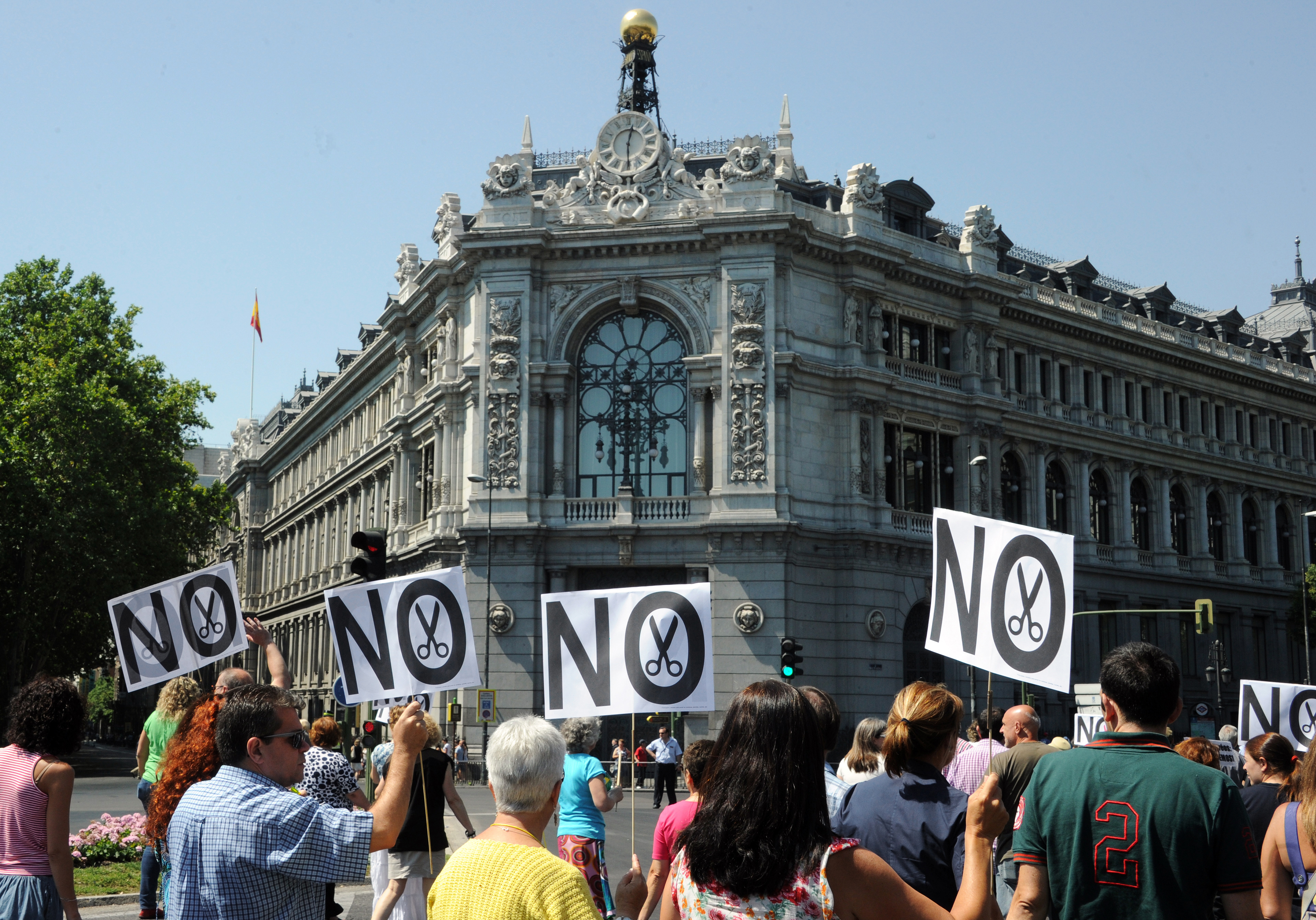Spain is a long way from being Greece or Portugal, but in Sunday’s historic general election, Spaniards sent out the same message that the Greeks did in July and the Portugese did in October – namely, a resounding ‘No’ to austerity economics. Anti-austerity Podemos—the left-wing challenger party that is less than two years old—took a staggering 20.7 per cent of the national vote and is now the third-strongest political force in Spain.
As long as the composition of Spain’s new government is unknown, the country’s economic recovery is on hold – but two things, at least, are now very clear. First, the Popular Party has failed to convince many Spaniards of its claim to be the only economically competent party – that is, the only party that can nurture Spain’s return to economic health. This message was at the heart of its campaign narrative, with prime minister Mariano Rajoy citing his party’s adoption of austerity measures and labour market reforms as being key to the steady GDP growth of the last two years. And secondly, the dominance of the Popular Party and Socialist PSOE—who came second on Sunday, with 22 per cent of the vote—has been irrevocably challenged for the first time in the country’s forty-year democracy.
[datawrapper chart=”http://static.spectator.co.uk/axYwX/index.html”]
Podemos is the new star of Spanish politics, but its fortunes over the last few months have fluctuated. Sunday’s result, though, showed that Pablo Iglesias’ party has spectacularly recovered from the dip in popularity it suffered as a result of the Greek crisis in July. Despite Greeks voting ‘No’ in the referendum on the terms of a proposed EU bailout package, Greece’s prime minister Alexis Tsipras found it difficult to maintain his anti-austerity stance in subsequent negotiations with Brussels, and he lost the support of much of his party as a result. But apart from their rejection of EU-imposed austerity, it was unclear what Syriza’s hardline MPs stood for, or how they proposed to deal with the economic crisis in Greece.
The contagion in Spain was swift, and anti-austerity Podemos, Syriza’s Spanish counterpart, slumped in the polls in July, down to 15 per cent from around 20 per cent earlier in the year. But slowly Spaniards started to realise that Iglesias’ repeated stress on the economic differences between Greece and Spain was not empty rhetoric; this, combined with disgust at the arrogant cronyism of the Popular Party and PSOE, saw Podemos start to climb in the polls again.
Events in Portugal in October helped Podemos too. There, a coalition of leftist, anti-austerity parties teamed up to form a government under socialist prime minister António Costa, removing power from the newly elected minority conservative government in the process. Costa’s coalition is fragile and potentially fraught, consisting as it does of his own moderate socialist party as well as the far-left Communists and Left Bloc; but its very possibility was borne from voters’ desire to challenge the establishment and reject austerity.
Over in Spain, Podemos’ fortunes were boosted by the example of Portugal, and its success on Sunday was owed to the same desires on the part of Spanish voters. Those same voters have emphatically rejected the Popular Party’s austerity, and collectively voiced a desire for a new approach. The question is now: what is this new approach?
It is looking increasingly likely that the new Spanish government will be a left-wing coalition, formed mainly by PSOE and Podemos, though the negotiations will be a drawn-out and complicated affair. Given that Spain’s nascent economic recovery could be so easily derailed, the fiscal programme of this new government will be under the microscope from day one; if it finds itself in power, then, Podemos’ great challenge will be to turn its negative rejection of austerity into a positive plan for continuing Spain’s economic recovery.







Comments